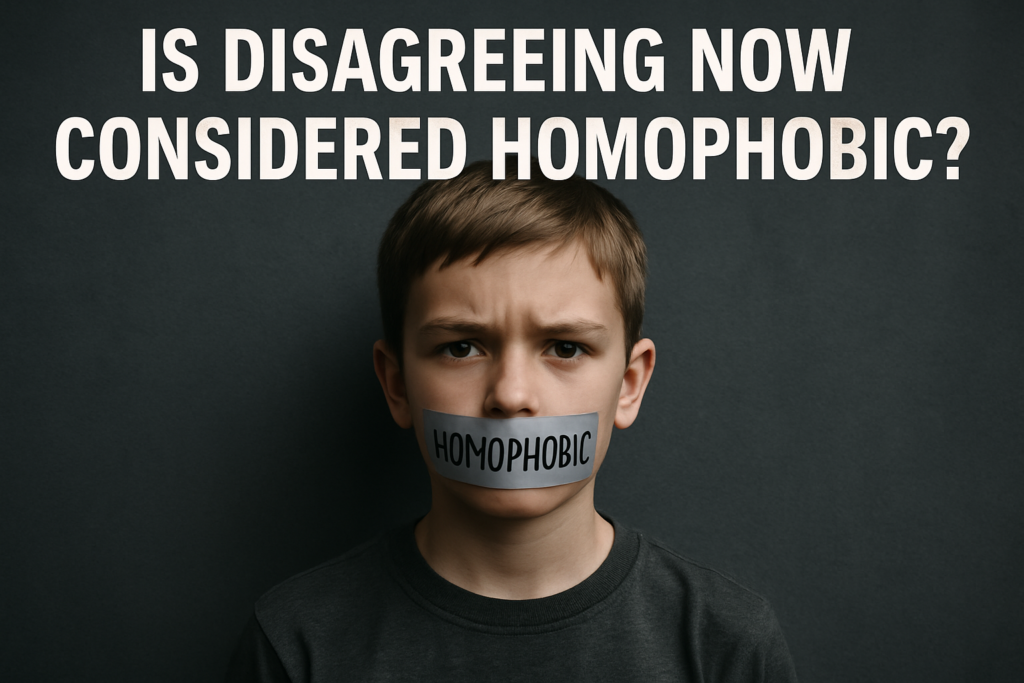
In today’s schools, acceptance is no longer just about respecting different lifestyles. It has shifted into a new territory where students are being forced to accept certain ideologies without room for discussion or disagreement. The push to normalize ideas like homosexuality and gender change has gone beyond education and into coercion.
The Rise of Forced Acceptance
Being tolerant and kind to everyone is a value we should all support. Kids should learn to treat each other with respect regardless of differences. But when acceptance becomes mandatory belief, it crosses a line. Many students today are taught that if they do not fully agree with certain views about sexuality and gender, they are automatically labeled as bigots or homophobic.
The term “homophobic” is now used recklessly. It is thrown at anyone who voices even a mild disagreement or simply wants to have a conversation. Students are not just encouraged to be kind. They are pressured to affirm concepts that they and their families might not believe in. There is a real difference between teaching respect and enforcing ideological conformity.
No Room for Different Opinions
Schools should be places where ideas can be discussed openly. They should prepare kids to think critically and form their own views. Instead, what we often see today is an environment where one narrative is pushed as absolute truth, and any questioning of it is treated as hate.
This makes it almost impossible for kids or their parents to voice concerns. If a parent expresses discomfort with certain lessons, they risk being called intolerant. If a student feels confused or simply disagrees, they are silenced or publicly shamed. Schools are creating a culture of fear where students learn to keep their real thoughts to themselves to avoid backlash.
The Buzzword Culture
Words like “homophobic” have lost their original meaning. They are now used more as weapons to shut people down rather than start real conversations. Kids are learning that disagreement equals hatred. This false equivalency is damaging to their ability to think independently.
When language is used this way, it removes any chance for true understanding. Instead of learning how to listen to different perspectives and find common ground, students are trained to police each other. They learn to fear being labeled more than they learn how to reason and empathize.
The Impact on Families and Values
Many families feel betrayed by the education system. They send their kids to school expecting academic learning, not ideological training. Families should have the right to teach their children their own values at home without schools undermining them.
This is not a call to encourage discrimination or bullying. It is a call to stop turning classrooms into battlegrounds for political and social agendas. Kids need education, not indoctrination. They need to learn how to navigate a world full of different beliefs without being forced to adopt any one view as a condition for being considered a good person.
A Better Way Forward
There is a healthier way to handle these sensitive topics. Schools can and should teach kindness and respect without demanding ideological submission. It is possible to foster a respectful environment without branding students who disagree as hateful.
Educators should focus on creating spaces where questions are welcome, differences are respected, and critical thinking is encouraged. True acceptance comes from understanding, not from forced agreement. Students must be allowed to explore ideas, challenge them, and even reject them without fear of being labeled.
Conclusion
Forcing kids to accept ideologies they or their families do not believe in is not education. It is indoctrination. Using buzzwords like “homophobic” to shut down any disagreement teaches fear, not understanding. Schools should be places where all ideas are open for discussion, and where students learn the difference between disagreeing and hating. Only then can we truly prepare them for the real world.
